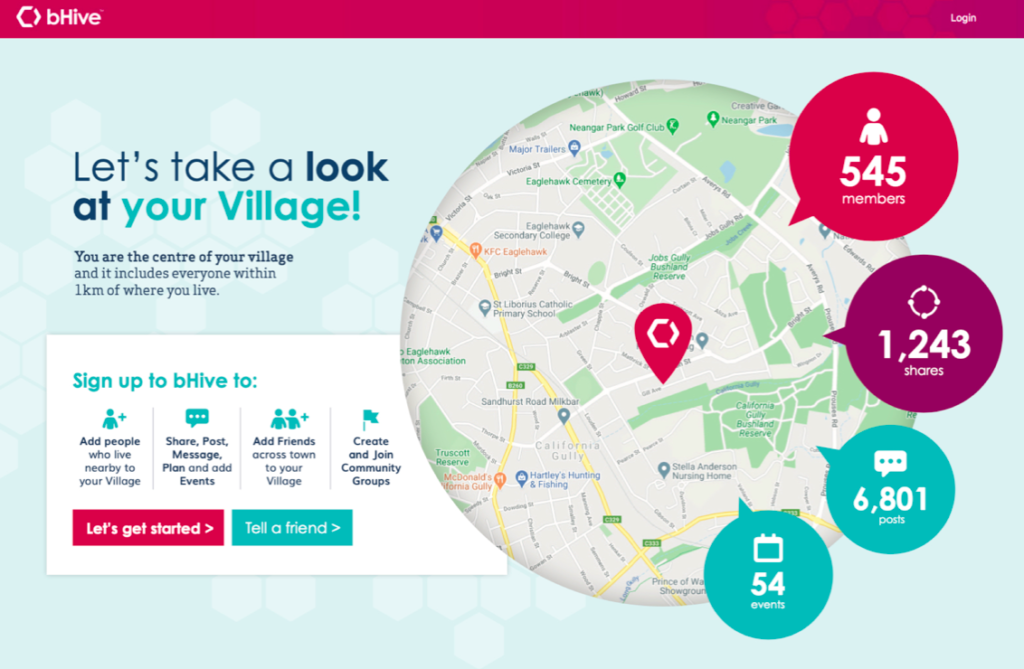In Bendigo, Australia, a team of 5 created a cooperative (“co-op”) with one simple goal: to create an “epidemic of belonging.” bHive, an alternative social media platform, launches in February with the goal of uniting small villages of people–you and the 250 houses closest to you, to pour money, friendship, and collaboration back into your local economy.
For years, Ian McBurney, bHive’s Cooperative Secretary, and his team have searched for a solution to the world’s most challenging problems. In a presentation on the future of local government, McBurney presents what he believes to be the most significant challenges we face:
- Soon we are going to have more plastic than fish in the ocean.
- Full-time employment is dropping. We are creating just as many homeless people as billionaires.
- 83% of animals (other than livestock) have disappeared in the last 30 years.
- Consumption is tied to ego, so a resource crunch is coming.
- After 30 years of “talks” the planet is heading towards 4 degrees of warming
- The growth of politics of fear
- Epidemic levels of social isolation, depression, anxiety, and homelessness.
His solution involves “localism.” When a fictitious member, he calls Nicole in all his examples, joins bHive, here’s what happens. First, she is linked up with those 250 nearest homes, and “she can make announcements, ask for things, give away things, ask for advice, set up sharing registers for free stuff, set up local events, and more.” Basically, they picture a hyperlocalized sharing of stuff, time, money, skills, spaces, transport, work, logistics, and more.
But don’t we already have Uber for that? Good question. bHive seeks to create an alternative to platform monopolies (other social media) taking over, and to give another option where each member is an owner (which is the definition of a co-op). In this way, the co-owners will control their own privacy, data, and reputation. He jokes that there won’t be any issues with people tracking Beyonce in her Uber. Instead, you will have your own choices about what personal data is and isn’t shared. “It’s increasing trust,” he says.
From there, maybe Nicole decides to share veggies with neighbors. Maybe she teaches them how to prune the fruit trees that line the yards of her street. She pays a joining fee, and then pays just for the apps and services she wants from there. Her money is split between bHive and local charities of her choosing, but more importantly, all of the money stays local. Nicole can also earn money, rebates, and discounts.
McBurney uses the example that Bendigo families spend $2.5 billion, but most of it goes out of the country. With this platform, it would be recirculated back into the local economy, contributing to solutions for some of the world problems listed above. He hopes that people launch this platform in their own villages, all over the world, not just in Bendigo.
So the next time your child’s school abruptly switches to virtual, and you are wondering how many other parents are scrambling to give or find a ride to neighbors, consider the efficacy of your current social media, and what other options might soon be on the horizon.









